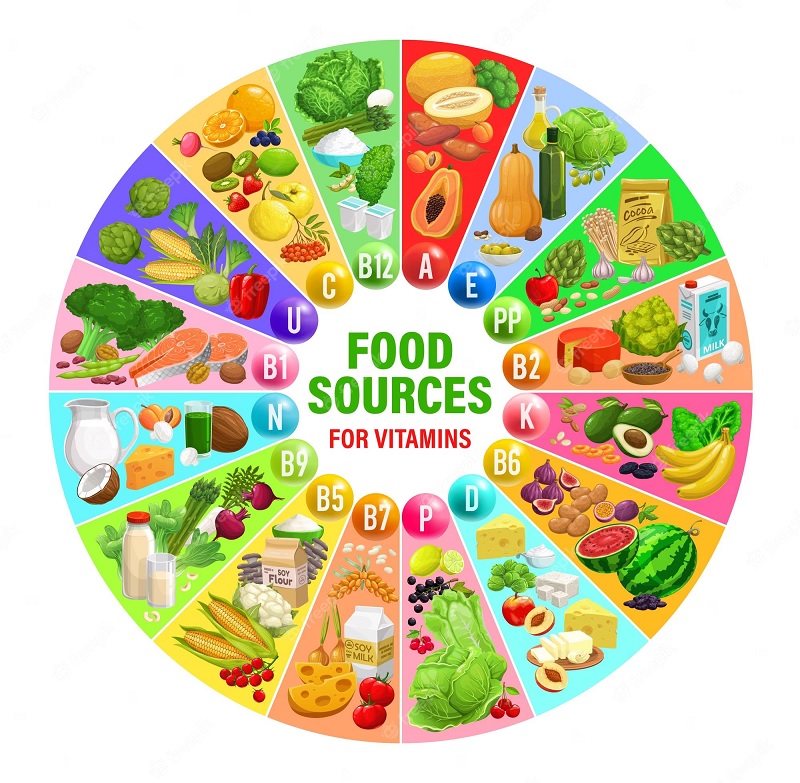Sources of vitamins and minerals are very easy to find. You can even find it on the daily food menu. The function of both is quite important for the body. This proves that everyone needs healthy food. In order to make it clearer, we will convey where the sources of the two come from.

Some Examples of Foods that Contain Vitamins and Minerals Sources
Vitamins and minerals are essential nutrients that the body needs to function properly. They play various roles in maintaining good health and preventing deficiencies and chronic diseases. Here are some common sources of both ie:
Vitamins
Sources of vitamins and minerals you can get easily. This time we will discuss about vitamins. Vitamins are organic compounds that are important for the body. They are micronutrients that humans only need in small amounts. However, vitamins play an important role in various physiological processes. Closely related to and contributing to overall health and well-being. Some types of vitamins contained in food, namely:
- Vitamin A: Found in foods like carrots, sweet potatoes, spinach, kale, liver, eggs, and dairy products.
- C: Abundant in citrus fruits (oranges, lemons, grapefruits), strawberries, bell peppers, broccoli, and tomatoes.
- D: Sunlight is a natural source, and dietary sources include fatty fish (salmon, mackerel, sardines), fortified dairy products, and fortified cereals.
- Vitamin E: Found in nuts (almonds, sunflower seeds), seeds, vegetable oils (sunflower, safflower, and wheat germ), and spinach.
- Vitamin K: Present in green leafy vegetables (spinach, kale, broccoli), Brussels sprouts, and fish.
- B Vitamins (B1, B2, B3, B5, B6, B7, B9, B12): Found in a variety of foods including whole grains, lean meats, poultry, fish, eggs, dairy products, legumes, nuts, and seeds.
Minerals
Vitamins and minerals sources different. Minerals are inorganic elements that are essential for various physiological processes in the body. Like vitamins, minerals are considered micronutrients because they are needed in smaller amounts than macronutrients. Such as carbohydrates, proteins, and fats. Minerals have an important role in maintaining health. Here are some common sources of minerals:
- Calcium: Dairy products like yogurt and cheese. From green leafy vegetables such as mustard greens, kale and spinach.
- Iron: Even iron is contained in red meat, poultry, fish, beans, lentils, tofu, cereals and dark leafy vegetables.
- Magnesium: In addition, it is also found in nuts, seeds, whole grains, green vegetables, legumes, and dark chocolate.
- Potassium: Interestingly, potassium is abundant in fruits (bananas, oranges, melons), vegetables (spinach, potatoes, sweet potatoes), and nuts.
- Sodium: Often consumed through salt, but also found naturally in small amounts in foods such as dairy products and vegetables.
After you know the vitamins and minerals sources, make sure you can meet the body’s needs. So that life will be much healthier.